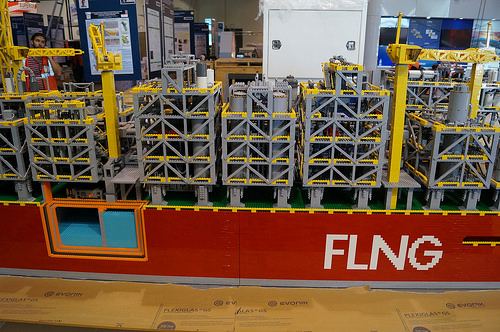Shell's LNG ideas doubted
 Analysts say Shell’s liquefied natural gas (LNG) strategy could lead to significant financial losses for shareholders.
Analysts say Shell’s liquefied natural gas (LNG) strategy could lead to significant financial losses for shareholders.
The Australasian Centre for Corporate Responsibility (ACCR) report, Shell’s LNG Strategy: Overcooked? (PDF), challenges Shell’s optimistic outlook for LNG demand, which it claims outpaces all International Energy Agency (IEA) forecasts.
The ACCR suggests that Shell’s reliance on emerging market growth ignores the increasing affordability of renewable energy.
It warns that Shell’s LNG strategy may not align with economic or environmental realities, potentially eroding the value of its LNG portfolio.
The report finds that Shell’s LNG prices would need to fall below $5/MMBtu to compete with renewables in key markets like Vietnam, Thailand, and the Philippines. This is far below the $8/MMBtu lifecycle cost estimated by the IEA.
It says that if prices reach this level, current LNG assets would lose most of their value, ongoing projects would suffer a US$10 billion loss, and planned projects would fail to receive financial backing.
Shell’s uncontracted LNG position, which exceeds a billion tonnes by 2050, adds to its exposure. The ACCR estimates that for every US$1/MMBtu drop in LNG prices, the company risks a US$13 billion asset devaluation.
The ACCR accuses Shell of overstating LNG’s role in decarbonisation, particularly in the Chinese steel sector.
It claims Shell selectively uses data to support its position and misrepresents the IEA’s Net Zero Emissions scenario, exaggerating the compatibility of its forecasts with the 1.5°C global warming target.
The report also questions Shell’s assumption that emerging markets will prioritise LNG over renewables, which are cheaper and faster to deploy.
By 2030, when Shell anticipates having 40 million tonnes of uncontracted LNG, renewable technologies are expected to dominate these markets, undermining Shell’s projections.
The shareholder activist’s report calls for greater transparency in Shell’s lobbying efforts to secure LNG demand in emerging markets.
It notes investor concerns about inadequate disclosures and accuses Shell of “gambling on gas” at the expense of shareholder value.
“Shell’s financial exposure to LNG prices is rapidly expanding,” says Nick Mazan, ACCR’s UK Company Strategy Lead.
He added that the company’s strategy seems driven by “hope rather than a reasoned understanding of energy markets”.
Shell, the world’s largest LNG trader, plans to grow its LNG business by 20 to 30 per cent by 2030.
However, the ACCR warns this approach exposes the company to significant financial and reputational risks.
The analysts say that over-reliance on LNG in a transitioning energy landscape could not only harm Shell but also misalign with broader efforts to decarbonise energy systems.







 Print
Print